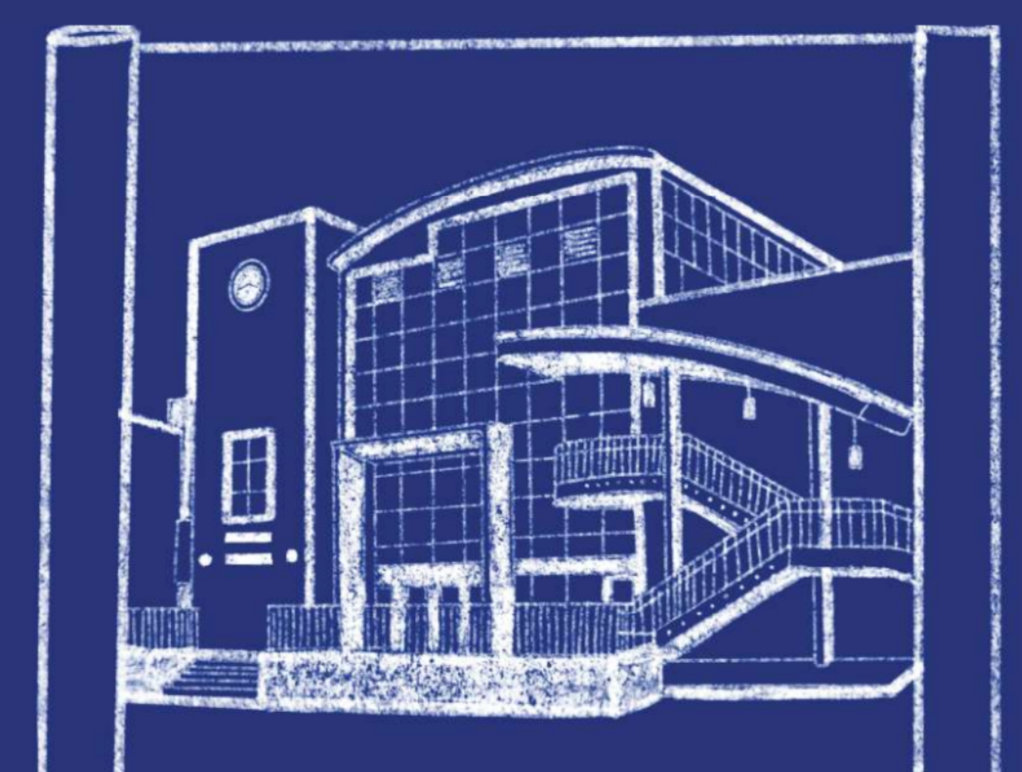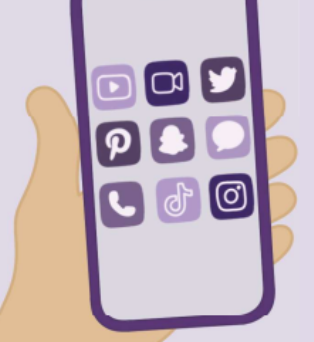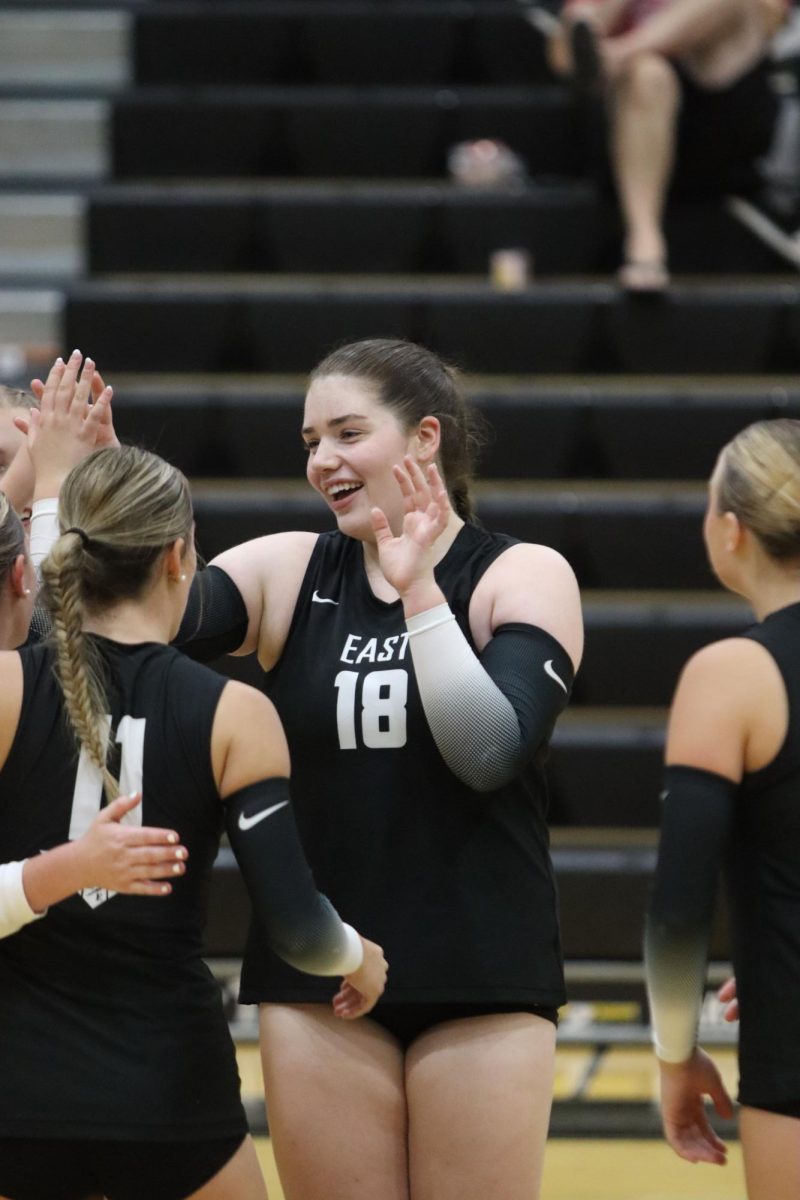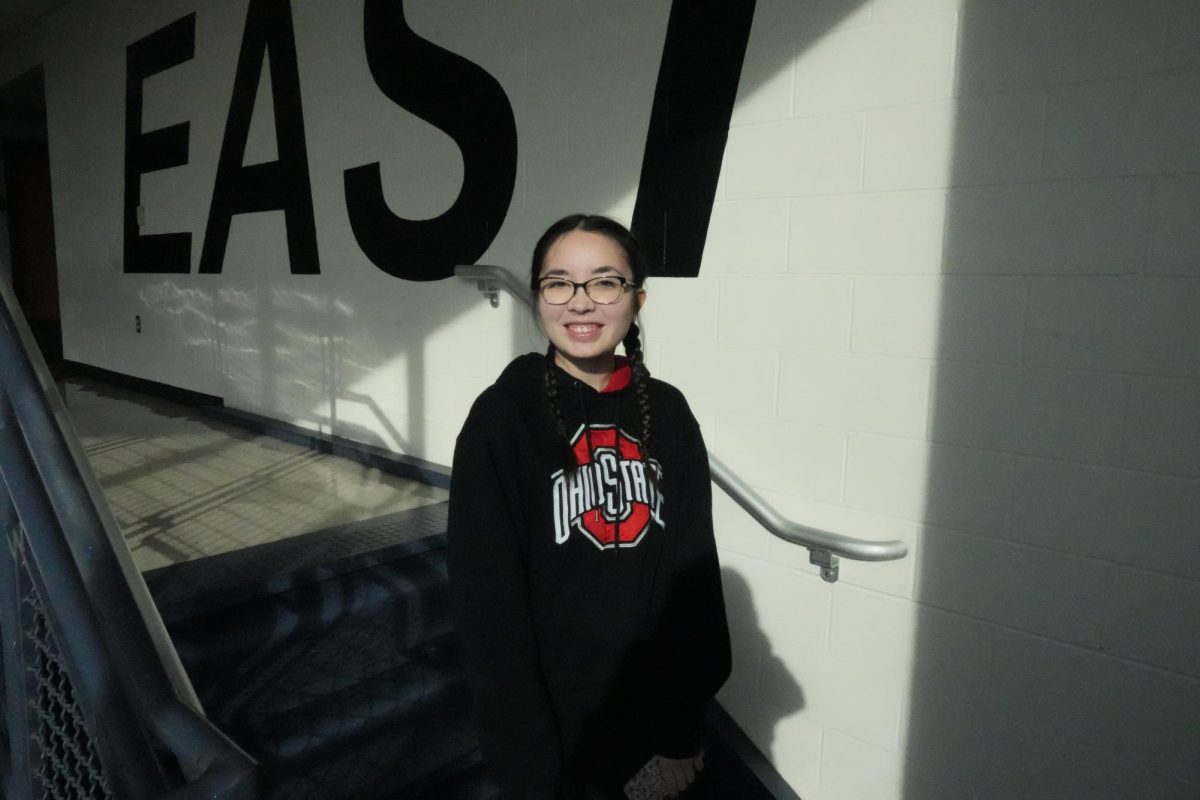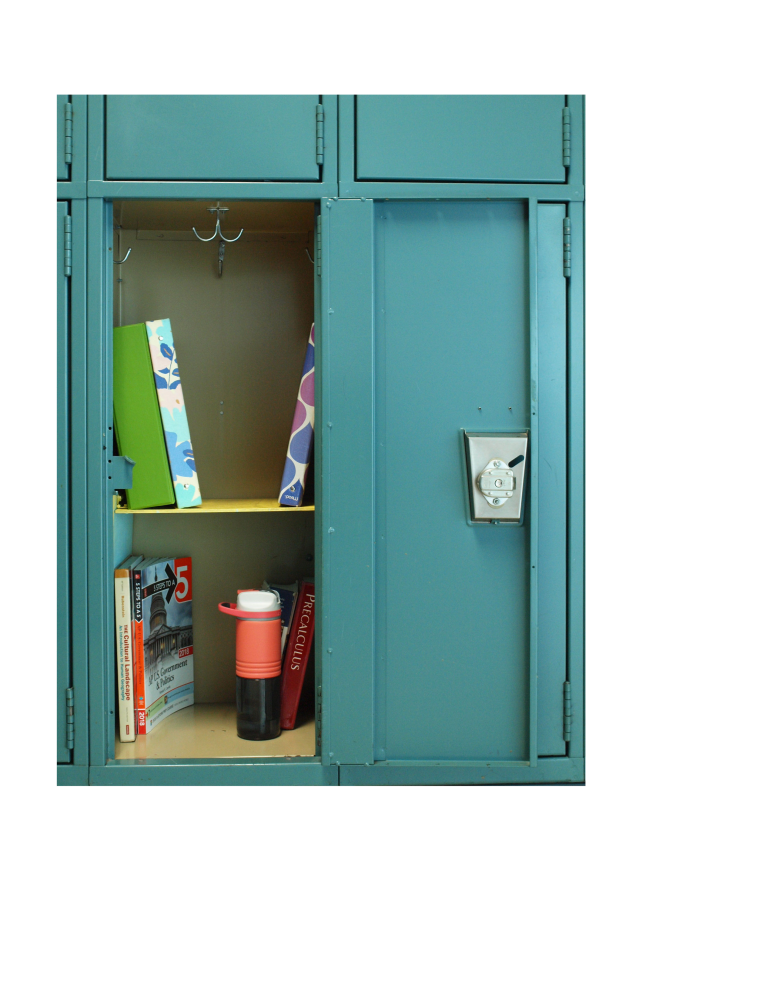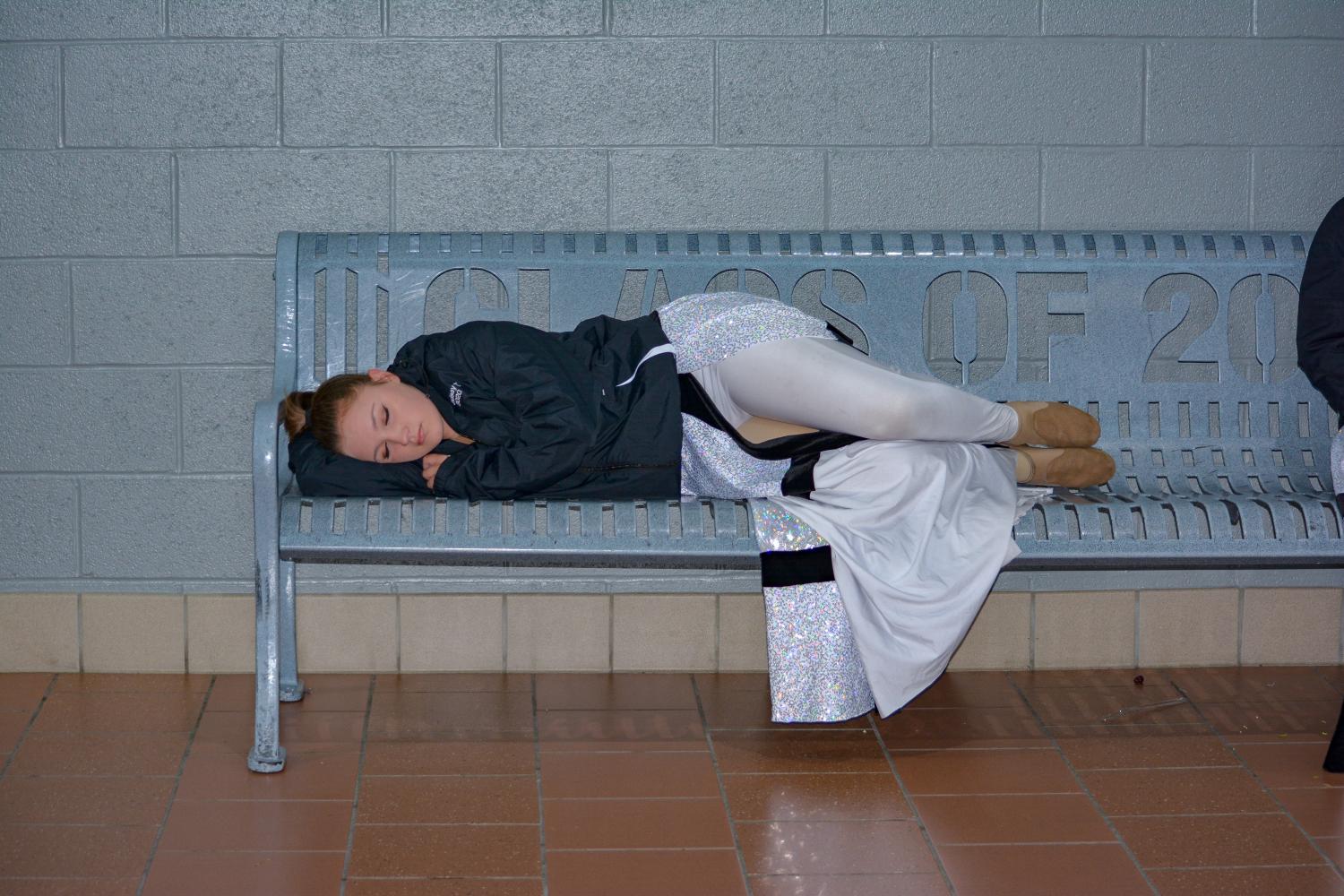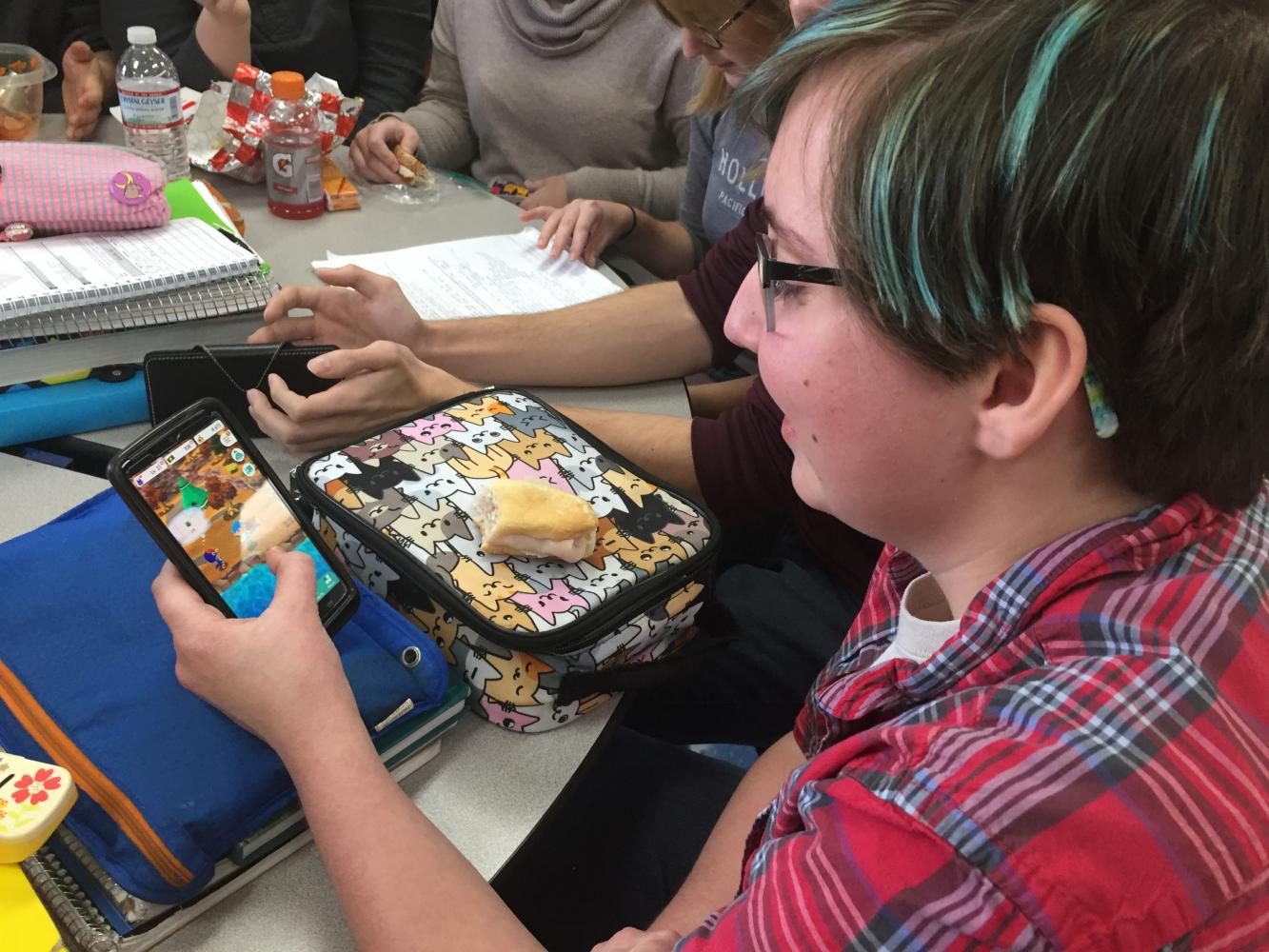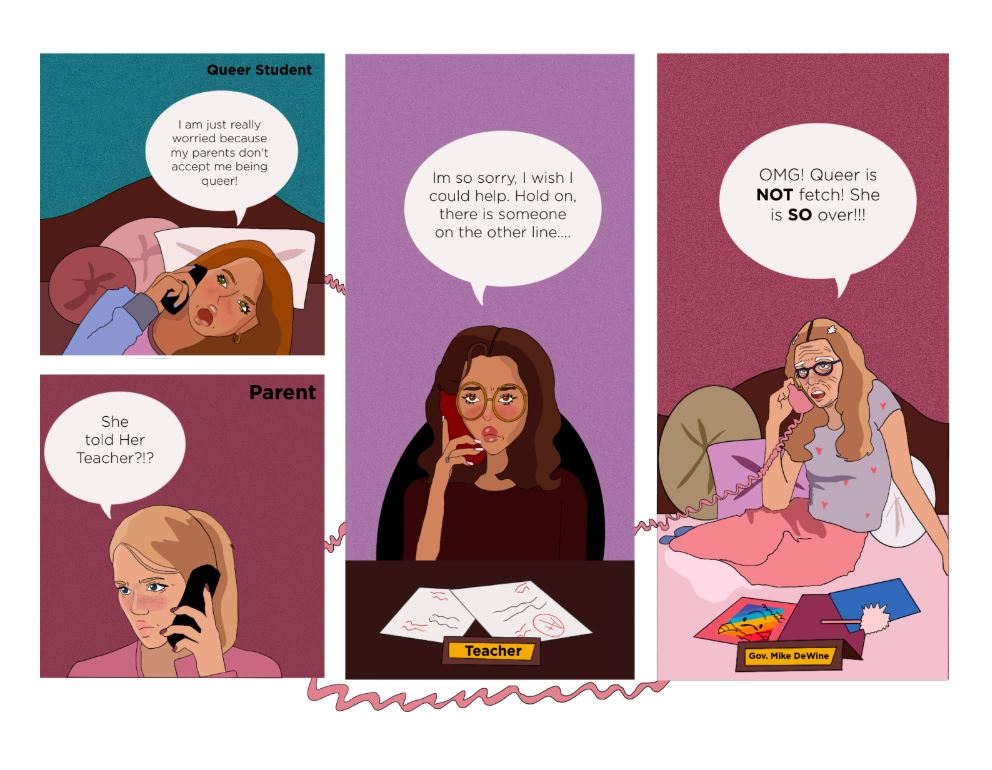story by Eliza Bush | art by Kelly Johantges
For the 918 students currently enrolled in Advanced Placement (AP) courses at East, news of the coronavirus brought a unique set of worries: how to prepare for their upcoming AP exams.
Every year, in the first two weeks of May, 2.8 million students around the world prepare to take one or more AP exams, according to the College Board’s 2019 Program Summary Report. This year, East junior Anna Florence is preparing to take three AP exams: AP English Language and Composition, AP Biology, and AP Spanish Language and Culture.
For Florence, AP courses represent more than a fiscal relief from college courses, but a style of learning that prepares her to tackle topics she may use in the future.
“[AP classes] are about learning things and making sure that you are prepared for a college environment,” Florence told Spark. “It’s about getting that basis of knowledge that you will need as you move throughout college in your career. The main purpose of AP classes, to me, is deepening your learning and deepening your understanding of the world and of academia.”
This year, however, Florence’s set of AP exams represent a more daunting task amid COVID-19 concerns. With worldwide school closures, the College Board has decided to reformat each AP exam to fit an at-home model that students will take on a computer, tablet, or smartphone, as opposed to the in-school, written exam that students were anticipating.
On March 20, 2020, following President Trump’s announcement that states would be allowed to cancel federally mandated standardized testing for K-12 students, the College Board announced that high school students can take an online, 45 minute AP test from their homes.
Florence has concerns about the revised AP exam format.
“My biggest concern is just that it’s going to be 45 minutes,” Florence said. “That’s a very limited amount of questions. If I get a question on a topic that I don’t really understand that well, but I understand most other things in the curriculum, then I don’t get to demonstrate my knowledge of the curriculum and of the class as a whole.”
East students can check for updates from the counselor’s office here
East AP Spanish Language and Culture teacher Annie Cantrell shares Florence’s concern about the exam accurately representing her student’s ability. For the AP Spanish Language and Culture exam, students will complete two speaking activities: a cultural comparison in which the student will give a two minute speech on a cultural aspect in their community compared to a Latin American community, as well as a conversation in which the student listens and responds to a prerecorded “mock conversation.”
“I think the sample of my students’ skill set, or of any students’ skill set, is very limited in only one conversation, and one cultural comparison,” Cantrell told Spark. [The College Board] is getting such a limited view of what the students can do with one cultural comparison speech, and one conversation.”
On April 3, 2020, the College Board released the official exam formats for each of the 38 classes they offer. Prior to this, East AP U.S. Government and Politics teacher Tisha Menchhofer-Grote said she received an abundance of communication directly from the college board and from other AP teachers around the globe.
“At least every other day for the first three weeks, I was getting an email [from the College Board],” Menchhofer-Grote told Spark. “On the second of April, we were asked to attend a webinar with the Vice President of the College Board, Trevor Packer, where he told us all the new rules are for the individual subjects.”
Florence is satisfied with the communication she has been receiving from the College Board and from her teachers regarding the way COVID-19 will impact her AP exams.
“I feel pretty well informed,” Florence said. “I’ve been getting information both directly from the College Board and information that my teachers have gotten from the College Board. The College Board has done a good job trying to communicate with us and trying to update us as they get more information as it’s changing and evolving.”
With the College Board’s announcement of exam formats came information on how they will ensure that the exam is fair for every student, including how they will manage cheating. Their solution is to use the Respondus LockDown Browser, a customizable browser that prevents students from printing, copying, or accessing another website for the full duration of their online test.
Despite communication from the College Board, Menchhofer-Grote still feels somewhat uninformed about certain aspects of the test.
“The way in which [Packer] tried to describe [the LockDown Browser] is still very unclear to me,” Menchhofer-Grote said. “They’re trying to portray a circumstance in which there’s not going to be cheating, but we’re not exactly sure what that looks like with a student who may have multiple devices.”
In addition to the use of the LockDown Browser, the College Board has plans to send student’s responses to their teacher to verify that it is the student’s work as well as to use plagiarism detection software.
A 2017 survey conducted by the Josephson Institute Center for Youth Ethics revealed that 95% of high school students have cheated in some form, whether that be cheating on a test, plagiarism, or copying homework. While the College Board is taking steps to reduce the ability of students to cheat on the exam, it is near impossible to eliminate cheating altogether.
Florence fears that students who manage to cheat on the exam will threaten her scores because of the bell curve system the College Board employs when grading AP exams.
“I know I won’t cheat on the test, but the fact that other people could is scary,” Florence said. “Only a certain percentage of test-takers get fives, a certain percentage get fours and threes and twos and ones. If people who are cheating are getting better scores, that would knock me to a lower score category.”
The changes to the AP test have subsequently resulted in changes to instruction in AP courses, all while students and teachers try to adjust to new remote learning methods.
Lakota Executive Director of Curriculum and Instruction Keith Koehne said the changes to the AP test may change instruction and learning methods.
“The curriculum stays the same, but the test only assesses three-fourths of the content, so teachers are making adjustments,” Koehne told Spark. “Teachers are adjusting to [the fact that the exam will be written] and will be preparing students for success in a fully written test.”
Cantrell has found that she’s been able to rethink activities that her students would normally do in class, while also preparing them for the entirely spoken exam they will take on May 22, 2020.
“There’s a huge social learning aspect that has almost entirely disappeared because we can’t have in-class discussions,” Cantrell said. “But, there are a lot of tech tools that allow us to sort of mimic that in a little bit of a less authentic way, like Flipgrid. With the changes to the exam, we’re going to do a whole lot more speaking practice and very very little writing.”
read more about Lakota’s response to online learning here
Flipgrid is an online resource that allows Cantrell’s students to film and submit videos to a class page. Her students can then react and respond to other students’ videos.
For classes in which the exam will be written, some teachers struggle with ways for students to get their work peer-evaluated online. Menchhofer-Grote is coping with this issue, while also struggling to find resources for her students to practice with due to the changes made to last year’s 2019 AP Government exam.
“The format is all brand new, so I don’t have a whole lot of content,” Menchhofer-Grote said. “What I’m doing is I’m sitting down and I’m making my own rubrics and I’m making my own questions. It’s just taking forever.”
Florence has noticed a difference in the workload for her AP classes compared to her other classes in the new remote learning format.
“Remote learning for an AP class is definitely a lot more work than my regular classes,” Florence said. “In my regular classes, I usually have about half an hour of work a day, whereas in AP I might have an hour of work every day.”
Despite complications for this year’s exam, Florence reflects on the learning she’s already done this year and the way that AP classes have shaped her education.
“I am thankful for the opportunity to take AP classes, because at many schools they don’t have any AP classes or the variety of AP classes we have at Lakota,” Florence said. “AP classes are a really great option because they allow you to gain a deeper knowledge and understanding of a certain subject than you would in an honors or college prep course, so you are more prepared for college and a career that you might pursue in the future.”


